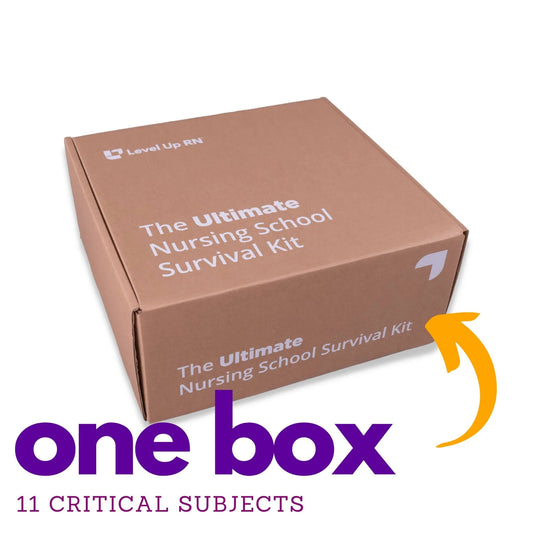Students can use flashcards to help understand a disease process their patient may have prior to actually interacting with the patient.
Pharmacology flashcards can help students understand the different medications their patients are on and what labs or side effects they need to monitor.
Lab Values flashcards will help students understand normal ranges for labs and why someone may have an abnormal result.
By referencing flashcards across a range of subjects, the students can put together a robust care plan for their patient prior to ever meeting the patient. Using this method, students will also have a better understanding of the patient and their treatments prior to meeting the patient. This helps the students better understand what they are walking into and what to expect when providing care for their assigned patient.
The Ultimate Nursing School Survival Kit - with Flashables and Membership
Debrief
After clinical, there is often a debrief, where questions like these are asked:
- Is there a concept students didn't understand in the clinical setting that day?
- Is there a patient diagnosis that they haven't cared for in the past?
- Is there a knowledge gap from what they learned in the didactic setting to how they are applying that information in the clinical setting?
This debrief is where you can review the key components of a specific topic or medication to help students better understand. Level Up RN flashcards can be a useful aid during these sessions. You can bring out the flashcards that cover the students' specific topics and discuss and review the material in detail.
Another strategy in a clinical debrief is to preselect flashcards that apply to the clinical experience for the day. For each student, draw one of the preselected flashcards and have the student explain that concept to you—it can be their ticket to leave for the day!


